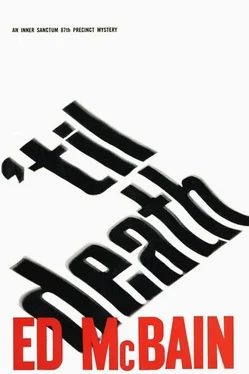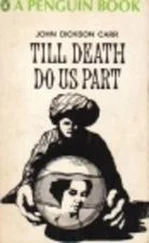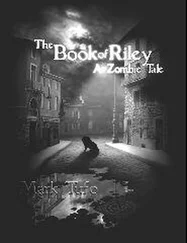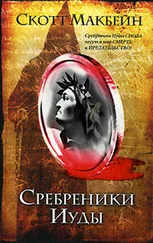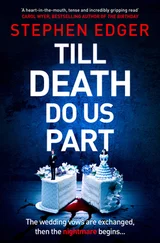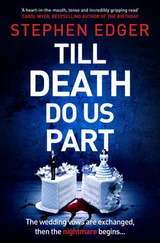What do I do? he wondered.
He listened.
The man was coming around the side of the house. He heard footsteps on the slate walk there, and then on the steps leading to the front porch, and then clomping across the porch to stop at the front door. There was no knock. Stealthily, the front door eased open, creaking on its hinges.
Silence.
In the attic room, the sniper waited. He could hear the footsteps again, carefully, quietly advancing through the silent house, toward the steps, hesitating on each tread, each creaking step bringing the intruder closer and closer to the attic room. Quickly, the sniper went to the door and stood just inside it. Quickly, he grasped the rifle by its barrel.
There were cautious footsteps in the corridor outside now.
He held his breath and waited.
The doorknob twisted almost imperceptibly.
The sniper swung the rifle back over his shoulder like a ball bat.
Gun in hand, Cotton Hawes kicked open the door to the attic, and the rifle moved in a sudden blurring arc, the butt catching him on the side of his face and knocking him senseless to the floor.
The stench of cordite still hung in the air of the small room across the street from Jody Lewis’s photography shop. Donald Pullen opened the door with his key and then said, “Phew! What’s that stink?”
“Cordite,” Meyer said immediately. The smell was as familiar to him as the scent of his wife, though not nearly so pleasant. “Someone fired a gun in here, Bob.”
“Yeah,” O’Brien said, and immediately began looking for the spent shell casing.
Meyer went to the window. “Nice view of the photography shop,” he said. He bent suddenly. “Here it is, Bob.” He picked up the shell casing.
“Here’s another one,” O’Brien said. He carried the casing to Meyer.
“Same gun,” Meyer said. “A rifle.”
“Somebody fired a rifle in this room?” Pullen asked incredulously.
“It looks that way,” Meyer said.
“Why? Why would anybody fire a rifle in a small room like this?”
“A good guess might be in order to hit somebody going in or coming out of that photography shop across the street. You said Miss Blake specifically requested an apartment near the photography shop, didn’t you?”
“Why, yes! That’s amazing,” Pullen said. “That certainly is amazing deduction.”
“Elementary,” Meyer said grandly, and Bob O’Brien stifled a laugh. “Let’s look around, Bob. A rifle doesn’t particularly strike me as the kind of weapon a woman would choose. What do you think?”
“I never think on Sundays,” O’Brien said, but he began looking over the apartment. The place had a look of impermanence to it. There was a bed with brass bedstead against one wall, a night-table standing alongside it. A basin and a pitcher of water rested on the table. A floor lamp stood behind a worn easy chair in one corner of the room. A curtained closet was on the wall opposite the window. Beside that was the door leading to a tiny bathroom. O’Brien went into the bathroom and opened the medicine chest. It was empty. He pulled back the curtain on the closet and looked at the empty hangers.
“Whoever was here was traveling light,” he remarked.
“Any signs of a woman?” Meyer said. “Lipstick tissues? Bobby pins? Long hairs?”
“Not even a sign of a human,” O’Brien said. “Wait a minute, here’s something.” He lifted an ash tray from the night table. “A cigar butt. Know any dames who smoke cigars?”
“Anne Baxter and Hermione Gingold,” Meyer said. “Think they also fire rifles?”
“Maybe. But most actresses don’t perform on Sundays. Besides, it would never be my luck to catch a case involving celebrities.”
“I had a celebrity once,” Meyer said. “A singer. It’s a shame I was a married man at the time.”
“Why?”
“Well,” Meyer said, and he shrugged eloquently.
“It certainly is fascinating to watch you fellows at work,” Pullen said.
“It beats television six ways from the middle,” O’Brien said. “Most people think of cops as everyday workingmen who go to a musty office and type up reports in triplicate and do a lot of legwork all over the city. Just ordinary guys, you understand? Guys with wives and families. Guys like you and me, Mr. Pullen.”
“Yes?” Pullen said.
“Sure. That’s the influence of television. Actually, a detective is a pretty glamorous character. Ain’t that right, Meyer?”
“Absolutely,” Meyer said, sniffing the cigar butt.
“He’s all the time getting involved with gorgeous blondes in slinky negligees. Ain’t that right, Meyer?”
“Absolutely,” Meyer said. The cigar was a White Owl. He made a mental note of it.
“He leads a life of gay adventurous excitement,” O’Brien said. “When he ain’t drinking in some very swank bar, he is out driving in a Cadillac convertible with the top down and the blonde’s knees up on the seat. Boy, what a life! I’m telling you, Mr. Pullen, detective work ain’t all routine.”
“It sounds much more interesting than real estate,” Pullen said.
“Oh, it is, it is. And the salary is fantastic.” He winked. “Not to mention the graft. Mr. Pullen, don’t believe what you see on television. Cops, Mr. Pullen, are not dull boobs.”
“I never thought they were,” Pullen said. “It certainly is fascinating the way you men work.”
“You’d imagine somebody in the building would have heard a rifle going off twice, don’t you think, Bob?” Meyer said.
“I would imagine so. Unless this is a home for the deaf.”
“Any other apartments on this floor, Mr. Pullen?”
“There’s one right across the hall,” Pullen said. “I rented it myself.”
“Let’s try it, Bob.”
They crossed the hall and knocked on the door. A young man in a short beard and a terry-cloth bathrobe opened it.
“Yo?” he said.
“Police,” Meyer said. He flashed the tin.
“Man, dig the badge,” the man in the bathrobe said.
“What’s your name?” Meyer asked.
“Real or professional?”
“Both.”
“Sid Lefkowitz is the square handle. When I’m on the stand, I use Sid Leff. Shorter, sweeter, and with a good beat.”
“What stand?”
“The bandstand, man.”
“You’re a musician?”
“I blow guitar.”
“Which name do you prefer?”
“Whichever one you like. I’m not choosy, man. Just blow your own ad lib chorus.”
“Mr. Leff, did you hear any shots coming from the room across the hall?”
“Shots? Oh, is that what they were?”
“You heard them?”
“I heard something. But it didn’t bother me. I was working on Strings.”
“On what?”
“Symphony for Twelve Strings. Don’t get the wrong idea. It ain’t from Bananasville. It’s a jazz symphony. I’m writing it for three guitars, six violins, two bass fiddles, and a piano. The piano gets in by poetic license. What the hell, without the strings on the sounding board, there wouldn’t be no piano, right?”
“Did you investigate the shots?”
“No. I figured them for backfires. Trucks go by here all the time. They take a short cut to the parkway through this street. A very noisy pad, this one. I’m thinking of busting out. How can a man concentrate in the midst of din, man, huh?”
“Did you happen to notice who was in that apartment?”
“The guy with the slush pump, you mean?”
“What?”
“The slush pump. The trombone. A guy came out of there with a trombone case under his arm.”
“Anything else?”
“No. Just the horn.”
“You saw the horn?”
“I saw the case. A guy wouldn’t be carrying an empty trombone case would he? That’s like carrying a guitar without strings. That would be a little too far out, man.”
Читать дальше
